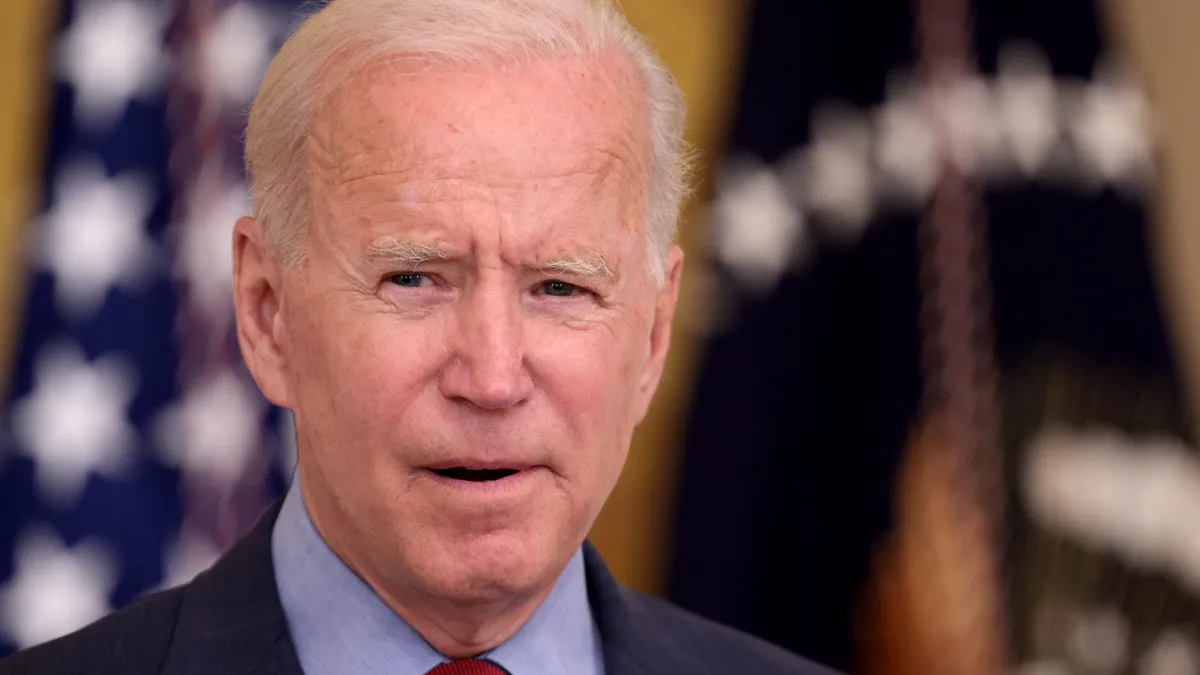Dive Brief:
- President Joe Biden on Friday signed an executive order that aims to bolster historically Black colleges and universities, a continuation of efforts from his predecessors.
- The order seeks to remove barriers preventing HBCUs from accessing federal funding and to reinforce their capacity to participate in federal programs. It also intends to create private sector, public-private and philanthropic connections for these institutions.
- Some of the initiatives the order promotes already existed in some form, but they are particularly relevant as HBCUs receive new national attention and record donations.
Dive Insight:
The executive order follows up on spending plans that would benefit HBCUs and other minority-serving institutions. Earlier this year, Biden proposed $39 billion to ensure two years of tuition-free college at four-year MSIs for students whose families earn less than $125,000 annually. And he called for a $45 billion investment in research at MSIs.
Biden issued the order days before the start of the federal HBCU Week event, which brings together institutional leaders, business representatives and others to discuss how to strengthen the sector.
In addition to identifying new funding and partnerships for HBCUs, the order seeks to support implementing a bill signed into law shortly before Biden assumed office, the Partners Act, which firms up the relationship between HBCUs and federal agencies.
The order also reestablishes a White House initiative on HBCUs that advises the president on advancing the institutions. Presidents have issued executive orders setting up initiatives on HBCUs since 1980.
Biden's version calls for an executive director to lead it in a similar structure to the initiative former President Donald Trump created.
But that director has not been named, and one consultant specializing in HBCUs pointed out that Biden's HBCU agenda "is sorely incomplete" without that individual.
HBCUs, which number more than 100 in the U.S., have drawn new federal and philanthropic dollars. In particular, billionaire MacKenzie Scott targeted MSIs, including HBCUs, with several rounds of donations. Many of the gifts Scott made were record-breaking for the colleges they benefitted. Leaders at these institutions have described the money as transformational.
Gaps remain, however, between these institutions and their predominantly White counterparts. The order draws attention to the fact that HBCUs, on average, enroll a greater share of low-income students than other institutions but receive less tuition revenue and have smaller endowments.
Trump was credited with raising HBCUs' national profile, though he has been criticized for exaggerating his administration's role in revitalizing them. At a conference last year, Trump took sole credit for rescuing the institutions. He said, "I saved HBCUs. We saved them. They were going out, and we saved them."
Fact-checkers point out that a bipartisan bill in Congress in 2019 cemented $255 million in STEM funding for MSIs, and in fact Trump proposed scaling back key aid programs in his budgets, which would have disproportionately affected HBCUs.














